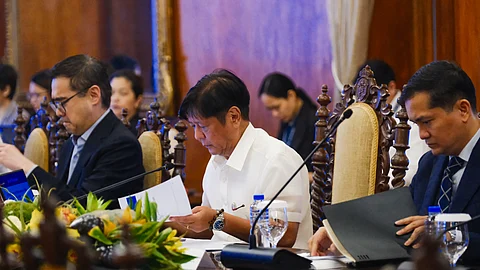
- NEWS
- the EDIT
- COMMENTARY
- BUSINESS
- LIFE
- SHOW
- ACTION
- GLOBAL GOALS
- SNAPS
- DYARYO TIRADA
- MORE

President Ferdinand Marcos Jr. will be putting himself in an “awkward position” if he calls for a special session of the Senate, especially after critics have pointed to him as the mastermind of Vice President Sara Duterte’s impeachment.
“The way we see it, it would be awkward on the part of the President to voluntarily call for [a] special session considering that there is this ongoing intrigue that the President is behind the impeachment proceedings,” said new Presidential Communications Office Undersecretary Claire Castro.
“It is better if the Senate asks the President considering that he said that if the Senate will ask him to call for a special session, he will do so,” Castro said.
Both chambers of Congress — the House of Representatives and the Senate — are currently on break and are scheduled to resume their sessions in June.
The Senate received the articles of impeachment on its last session day on 5 February.
Even though Senate President Francis “Chiz” Escudero has been urged to call for a special session, in keeping with the term “forthwith” in the Constitution, Castro said the term would still have to be defined as it has many definitions, and particularly since Congress is on break.
“If you read the provision of the Constitution, you will see “to proceed with,” right? But there is no time element. Is it to proceed even during recess? Because [the Senate] can proceed definitely if there is a session, there’s no question about that. But to proceed during a recess, that’s a gray area in the Constitution,” Castro said.
So far there has been no request from the Senate for the President to call a special session.
Meanwhile, Castro said the President is not restricted to calling for a session solely for legislative matters but he may call for one on other issues without conditions.
“The President may call a special session at any time. So, with that, it’s not just limited to an urgency regarding a bill or legislation, but we believe it includes an impeachment trial,” she said.
